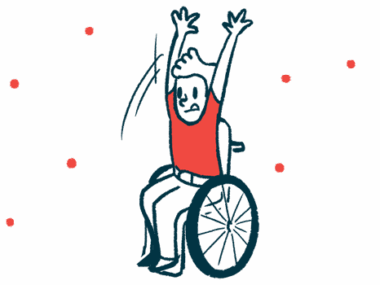SMA Is Full of Contradictions
Written by |

This month, I’m celebrating SMA Awareness Month the only way I know how: by recognizing that SMA is full of contradictions.
Last year, I wrote an entire jeremiad on my ambivalence toward SMA Awareness Month. I didn’t hate it, but I didn’t like it, either. I recognized the benefits of awareness months, but asked if they do more harm than good. Posts on social media are all well and good, but do people act on their interest, moving from curiosity to advocacy? Do they partner with rare disease patients to improve our communities, or do they like the post, share it to their Instagram stories, and move on?
I’m a different person than I was a year ago. The pandemic has softened me — or maybe it’s simply that my brain has turned to mush. Either way, I find I’m a little less aggravated by SMA Awareness Month. In fact, I’ve even made graphics to post on Instagram.
Still, I’m torn. More often than not, SMA Awareness Month feels like a performance. A well-oiled machine of infographics and fundraisers. But the optimist in me likes to think that people are interested; there’s a good chance that living through a pandemic opened their eyes to the realities of chronic illness.
It’s a familiar tension. A tension that is inextricable from life with a rare disease. I talk a lot about my complicated relationship with SMA — it infuriates me, but I love it, and there’s no formula, no simplified equation, that accurately represents the push and pull of contradictions.
Do I hate SMA? Of course. Do I appreciate everything it’s taught me? Absolutely. Would I choose to cure myself, given the opportunity? The jury’s still out. Those three statements contradict one another, and yet they coexist.
It shouldn’t be possible. And yet.
I’ve been going through a mini depressive episode. The therapist in me says that, against all logic, I’m suffering from seasonal affective disorder. Every summer, usually mid-July, I get unbearably sad for no discernible reason. Don’t ask me why. But I’ve learned that, as with all things, the sadness will eventually pass.
Again, that tension — I know this won’t last forever, but it feels like it will. Both of those things can be true at once.
Every morning, during my respiratory treatment, I check my email and catch up on newsletters. The other day, halfway through my daily devotional, I read something that punched me in the gut: “Healed are those who weep for their frustrated desire; they shall see the face of fulfillment in a new form.”
I saw this as an omen. A promise: Things are hard right now, but it won’t be this way forever. Then I sent the quote to my friend Sherry, who connected it to our shared disease. “SMA makes a hobby of frustrating our desires, but it leads us to fulfilling things, too.”
Again, that tension — SMA sucks, but it is also a font of good things. Somehow, inexplicably, both of those things can be true at once.
Maybe that’s why I struggle with SMA Awareness Month; it doesn’t reflect nuance. Infographics improve comprehension, not understanding. They describe the prevalence of SMA, the severity and symptoms, but sacrifice complexity. I can write Instagram captions and columns, Twitter threads and memoirs, but the fact remains.
It’s almost impossible to represent the intricacies of SMA, the tangle of contradictions that make up life with rare disease.
Because it’s hard. It’s exhausting. It’s a treadmill of obstacles, from accessible transportation to medication administration. (Seriously, why is there no such thing as liquid Advil for adults?) SMA is unforgiving. Punishing. It takes and takes and takes.
But it also gives. SMA pushes me to be a better person — to take care of myself and the people I love. SMA breaks me, but it always puts me back together, in ways I would never have expected. SMA forces me to be grateful. To say thank you, and please, and would you mind not boring holes into my head with your eyes?
SMA is one big stretch. Often uncomfortable, occasionally rewarding, always an adventure.
***
Note: SMA News Today is strictly a news and information website about the disease. It does not provide medical advice, diagnosis, or treatment. This content is not intended to be a substitute for professional medical advice, diagnosis, or treatment. Always seek the advice of your physician or other qualified health provider with any questions you may have regarding a medical condition. Never disregard professional medical advice or delay in seeking it because of something you have read on this website. The opinions expressed in this column are not those of SMA News Today, or its parent company, Bionews, and are intended to spark discussion about issues pertaining to spinal muscular atrophy.





Rustom Irani
Couldn't have stated it more lucidly myself. "SMA breaks me put it also puts me back together." - Beautiful.
Brianna Albers
Thank you!
Deepa
Thank you so much for the lovely piece put together from your heart, every word stands in alignment with my emotion and being. SMA like you say takes and takes away a whole lot, but also gives and pushes us with a ray of hope.
Lots of love coming your way from India
Brianna Albers
Thank you, Deepa! Much love to you.